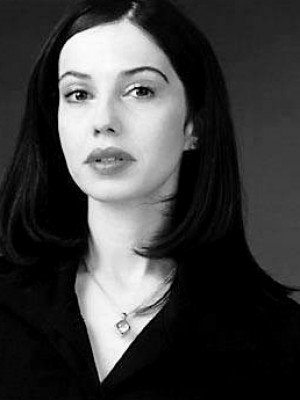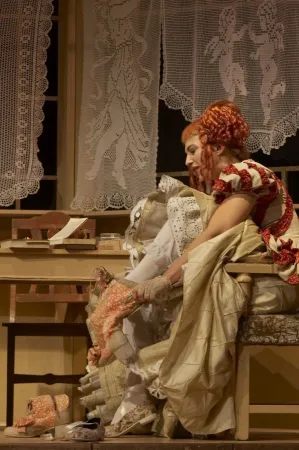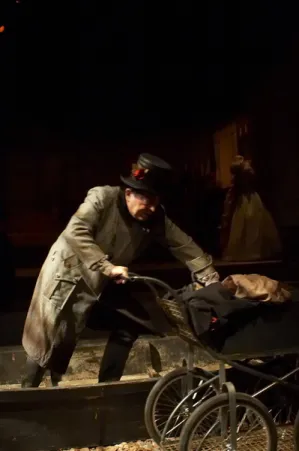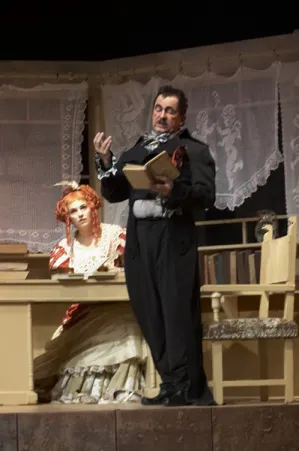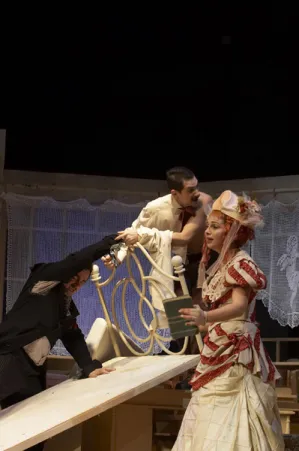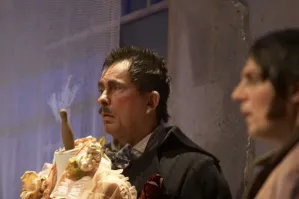The liar and the archiliar
comedy by Jovan Sterija Popović

This classic work of Serbian drama is a story abut two liars who found themselves in the house in which their lies are accepted as truth, hence provoking them to compete which of them is better and more persuasive at lying. Although, central theme is a lie, and most of the characters get turned into the lie-victims, the comedy still remains light and charming, thus reflecting the time we are living through.
Story, Belgrade, March 28, 2006
When you find actors such as Milan Gutovic (baron), Nebojša Dugalic (Mita), Nataša Ninkovic (Jelica), Boris Komnenic (Marko), Mihajlo Ladevac (Batic), Dobrila Cirkovic (Marija), the director has no trouble to give the authentic world in thirties of the nineteenth century, which Sterija masterly presented.
Danas, Belgrade, April 3rd, 2006
 JOVAN STERIJA POPOVIĆ
JOVAN STERIJA POPOVIĆ
J.S. Popović was born on January 1, 1806. His father was a merchant, Tzintzar by nationality and his mother was very educated women from an artistic family, Serb by nationality. Mother’s background and his poor health from an early age disabled him to fulfill his father wish and to takeover family business. Instead, he devoted himself to studies. He graduated from the University of Budapest, where he had first important contacts with theatre, which would soon after become his great love and obsession. In Budapest he has written and published his first poems that were followed by tragedies. On return to Vršac, as a graduated jurist, he became a professor of Latin language and after that a lawyer. During that period he was very much occupied with his literary career. His first comedy The Liar and the Archiliar revealed him to be a brilliant comediographer. His long-lasting wish to come to Serbia and to help his people in organizing the new liberated state was finally fulfilled in 1840. He was appointed as a professor at the “Liceum”, located in Kragujevac. There he helped his colleague Atanasije Nikolić, also Serb from Vojvodina, to start the student theatre company. At the same time he was caught by the idea to found the “Learned Society”. The following year, when the “Liceum” was relocated to the capital, he came to Belgrade where he deepened his cultural, social, and educational activities. He took part in founding of the “Theatre at Djumruk”, and the theatre “At the Deer’s”. He wrote and translated texts, taught actors how to act, wrote critics and helped the theatres in administrative and juridical matters…He was deeply devoted to the improvement of school system in Serbia, he wrote schoolbooks, prepared guidelines for school administration system, set up founds, started to publish educational magazine “Prosvetne novine” and took part in bringing of the first education law… He was one of the most fervent promoters of the “Society of Serbian Letters” (later, the “Academy of Sciences”). Also, he was a great advocate of the idea to incorporate the native language into the literary one (although not so radical as it was the case with Vuk Karadžić). He was among the first who organized collection and preservation of the valuable antique subjects, and was one of the founders of the National Museum. He held the position of a Head of the Ministry of Education for several years… and all of these in eight years only. However, during the regime of so-called “Defenders of the Constitution”, when the first generation of Serbian students graduated from various European universities came back to their fatherland, the outcry at Serbs from Vojvodina, the so-called “pro-Germans”, who were the only educated group in Miloš’s Serbia, became even more louder. Sterija couldn’t bear such circumstances and pressed with the other difficulties as well, decided to resign from his duty and in 1848 returned to his native town Vršac. Rather disappointed, tired, and ill, he was primarily concentrated upon his literary work. His best bitter comedy The Patriots, as considered to be by most of the critics, was written at that time, as a reaction on a conflict between Hungarians and Serbs in Vršac at the time of the Hungarian rebellion against Austrian regime, in 1848-49. J.S. Popović died on February 26, 1856, leaving behind himself everlasting influence in the culture of Serbia. During 137 years of the National Theatre history, eighteen plays written by Sterija were put in repertoire, as well as several plays inspired by Sterija’s biography. In the first three decades of XX century, his birthday was marked each year by organizing the so-called “Sterija’s Night” on which his plays were performed. Among the latest “Sterija Awards” which were granted to our House, those of the very special importance were for Kir Janja in 1993 and for The Upstart in 1998.
Prepared by: Jelica Stevanović
Premiere performance
Premiere, Saturday 25 March 2006 / “Raša Plaović” Stage
Director Jug Radivojević
Dramaturges Molina Udovički, Slavko Milanović
Editor Radovan Knežević
Set Designer Dejan Pantelić
Costume Designer Marina Vukasović Medenica
Composer Kornelije Kovač
Stage movement Pjer Rajković
Producers Nemanja Ralić, Saša Petković
Stage Manager Đorđe Jovanović
Prompter Danica Stevanović
Premiere Cast:
Marko Vujić Boris Komnenić
Jelica Nataša Ninković
Batić Mihailo Lađevac, Milan Tomić
Aleksa Milan Gutović
Mita Nebojša Dugalić
Marija Dobrila Ćirković
Lighting Designer Lazar Streoski
Make-Up Designer Dragoljub Jeremić
Stage Master Dimitrije Radinović
Sound Master Roko Mimica
Music recorded in Studio “Areta”
Sound Vlada Krkljuš
Set and costumes have been made in the National Theatre’s workshops.




